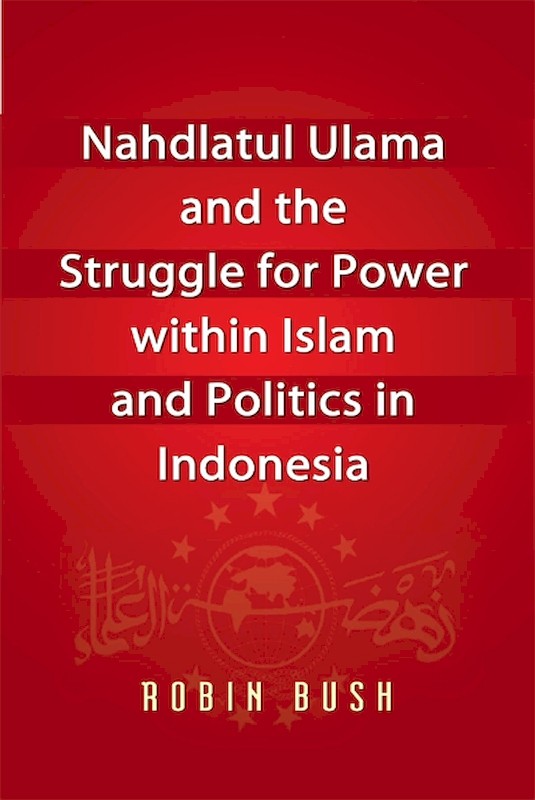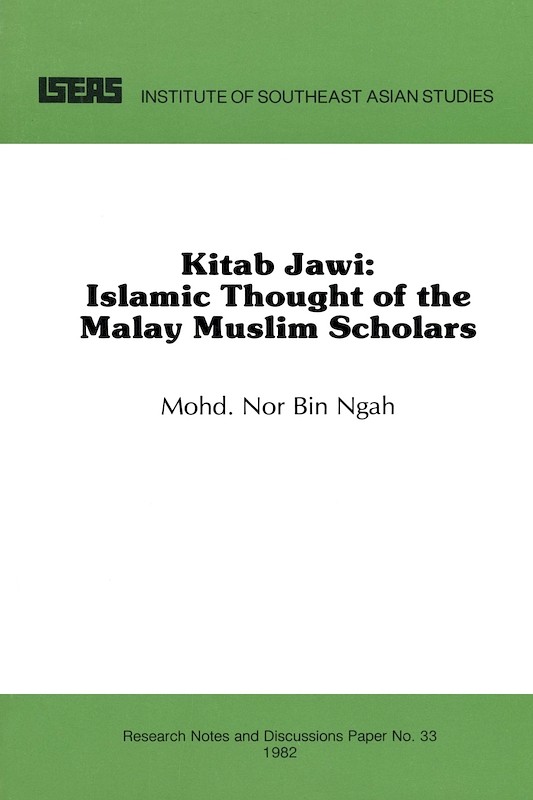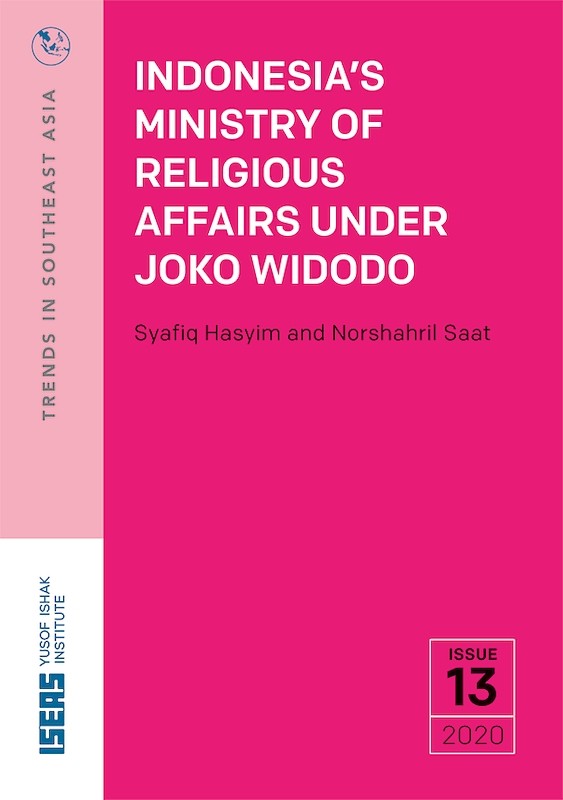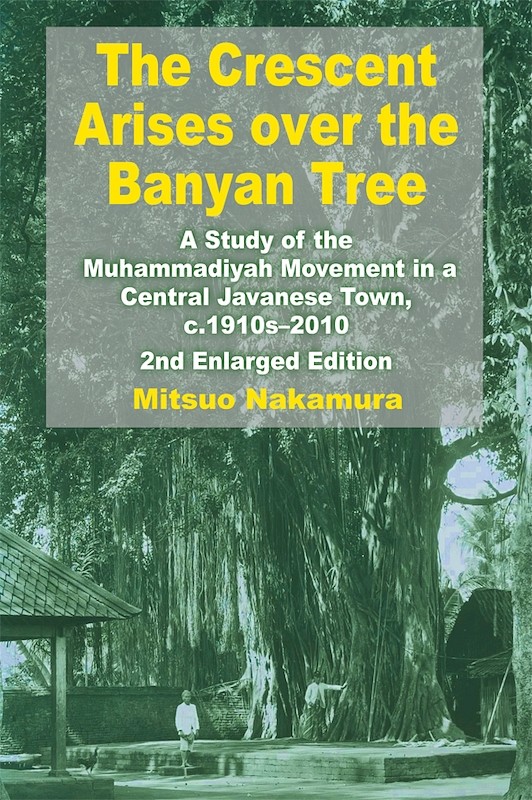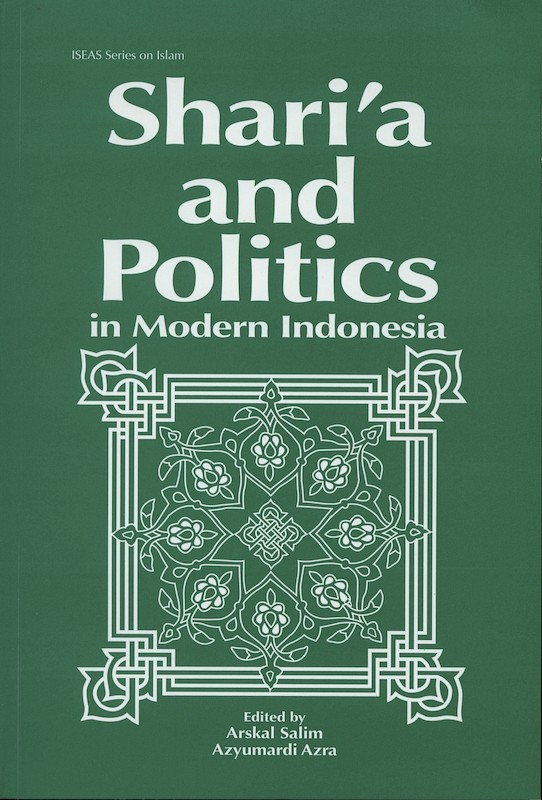Islamic Post-Traditionalism in Indonesia
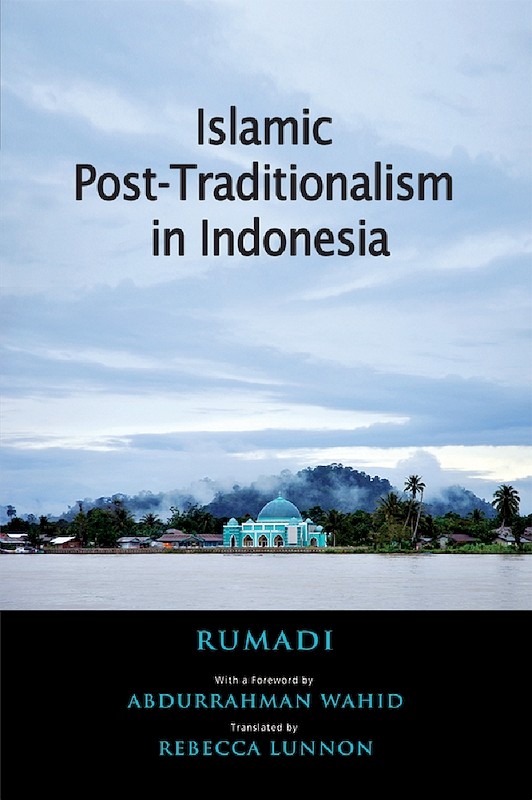
Rumadi, author
Date of publication:
2015
Publisher:
ISEAS – Yusof Ishak Institute
Number of pages:
309
Code:
BM517
Soft Cover
ISBN: 9789814620420
Reviews
Kevin W. Fogg. Bijdragen Tot De Taal-, Land-En Volkenkunde 173, 2017.
"One very useful observation of the author is how the heartbeat of Indonesian Islamic intellectualism has moved to NGOs since the 1990s. Rumadi's attention to structural factors for the emergence of the new wave of thought, including the increased number of Islamic boarding schools (pesantren) graduates going to university and the support of foreign development aid, is astute.
This book brings together lucidly, although perhaps not systematically, the major intellectual trends of NU from the 1990s to the mid-2000s, and it is useful for explaining post-traditionalism sympathetically. At the risk of justifying this intellectual topic with political context, one of the major thinkers discussed in this book, Said Aqil Siradj, was elected shortly after the translation was published as chairman of the NU executive council, showing that post-traditionalism is no longer just on the fringes of NU life. As the debate about the theological direction of Indonesia's Muslims continues in heated tones within the community itself, this book is a solid study of one significant position in that debate."
Andi Rahman Alamsyah. Asian Journal of Social Science 45 (2017) 363-376.
"This book, rich in data, describes the attempts made by several Nahdlatul Ulama youths (NU), Indonesia's biggest Islamic organisation, who push for the transformation of the NU's Islamic discourse from a traditional to a post-traditional one. Such a traditional discourse has been the mainstream discourse that has been taken for granted from generation to generation and is incompatible with contemporary humanitarian issues, such as human rights, gender equality, democracy, etc. (Pp. 7-10). In contrast, a post-traditional discourse refers to a discourse that continues to be based on tradition, but is still compatible with contemporary humanitarian issues and open to critique and interpretation (Pp. 95-114).
.... I agree with the author of this book that there are various factors that influence the emergence of the Islamic post-traditionalism discourse among the NU youth. ... through the comparison, advocates of Islamic post-traditionalism can reflect on what they have been fighting for, given their role will become increasingly important in Indonesia's increasingly conservative and intolerant discourse arena."
"....Islamic scholar Dr Rumadi, ... originally from Central Java, ... wrote Post Traditionalisme Islam: Wacana Intelektualisme dal am Komunitas NU (in 2008). The book has now been translated into English as Islamic Post-Traditionalism in Indonesia. The foreword by the late Abdurrahman Wahid (Gus Dur) Indonesia's fourth president and former leader of the mass organisation Nahdlatul Ulama, is surprisingly critical.
.... Eight years ago the little-known Cirebon-based Fahmina Institute based on the 'religious and intellectual practices of traditional Indonesian Islamic boarding schools' produced Rumadi's book. The English translation by Melbourne University academic Rebecca Lennon released this year gives Ramadi's study an international readership. It has been published by Singapore's prestigious Institute of Southeast Asian Studies, recognising the book's importance in understanding Indonesian Islam as interpreted through the NU prism.
The author lectures in Islamic law at UIN in Jakarta and is also a Commissioner at the government's National Information Commission in Jakarta. His education has been entirely in Indonesia and includes a PhD from the State Islamic University (UIN) in Jakarta. .... Rumadi said ... : 'The NU theological structure ... is unable to wrestle with the wild anarchy of meaning, fails to accommodate rapidly changing social dynamics and is too fragile to be the foundation for social empowerment towards a more social, humanitarian and democratic society.'
About the publication
Islamic Post-Traditionalism in Indonesia offers a unique assessment of the development of the phenomenon of Islamic post-traditionalism using Nahdlatul Ulama (NU), the largest mass Islamic organization in Indonesia (and the world) as a case study. Post-traditionalism is a term now widely used to describe the often controversial attempts by progressive reformers to reify and legitimize modern intellectual notions, often from non-Islamic sources, by using reference to terminology and ideas drawn from Islamic tradition. This book discusses the discourse of post-traditionalist thought within Islamic thought more widely, before turning to examine the emergence of new currents of progressive thought within NU in Indonesia and the factors that influence that. In particular, the book explores the sometimes fiery struggle between liberal and conservative thought in NU; and the position of post-traditionalist thought in the wider development of intellectualism in Indonesia. It covers in detail new religious discourses that are being developed and offers important insights into the implications and future for post-traditionalist thought among Muslims. The highly influential Indonesian version of this book was originally published as Post Traditionalisme Islam: Wacana Intelektualisme dalam Komunitas NU by the Fahmina Institute, Indonesia, 2008.
The e-chapter, "1. Introduction", is downloadable free of charge.
The e-chapter, "1. Introduction", is downloadable free of charge.
Contents
-
Islamic Post-Traditionalism in Indonesia
[Whole Publication, ISBN: 9789814620666], by Rumadi, author -
Preliminary pages
-
1. Introduction
-
2. NU Intellectualism: Foundations
-
3. NU and the Islamic Post-Traditionalist Discourse
-
4. Islamic Post-Traditionalism and the Future of NU Intellectualism
-
5. Conclusion
-
Bibliography
-
Index
-
About the Author

